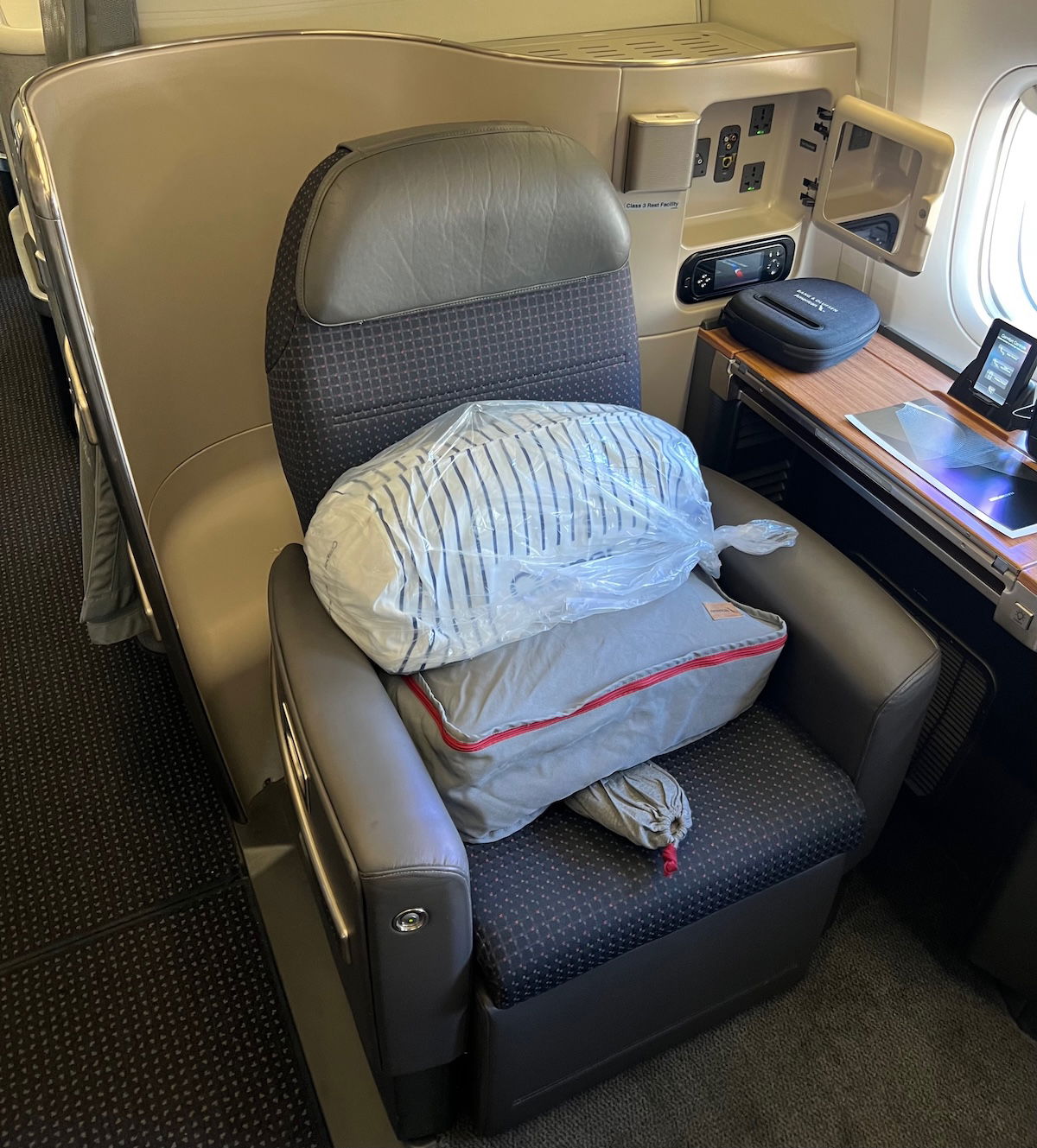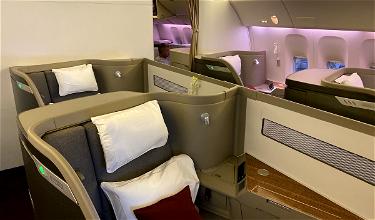I frequently write about promotions for purchasing airline miles and hotel points, as this can represent an excellent value.
While I generally don’t recommend buying points without a particular use in mind, in some cases you can get outsized value, particularly for aspirational redemptions (whether that’s a five star hotel or first class flight).
Even as we’ve seen award costs increase over the years, we’ve seen programs also improve the value proposition of buying points, often providing bigger percentage bonuses to account for devaluations.
While the main consideration when buying points should be that the deal as such makes sense, in this post I wanted to talk about what credit card you should use when buying points. This might not be as obvious as it sounds, since different programs go about points purchases in different ways.
Using the right credit card can make a material difference in terms of the value you get.
In this post:
Maximizing credit card rewards when buying points
Using the best credit card to purchase points might not be quite as straightforward as it sounds. This is due to an important distinction with how loyalty programs choose to process these purchases:
- If the airline or hotel program processes points purchases directly, you’ll want to use a credit card that offers bonus points for airfare and hotel purchases; that’s because the purchase of points is processed the same way as an airfare or hotel purchase
- A lot of loyalty programs use points.com to process points purchases, in which case that wouldn’t qualify as an airfare or hotel purchase; in that case you’ll want to use a card that maximizes your return on everyday spending
With that in mind, let’s talk about some of the most popular programs for purchasing points, and how they process those transactions.

Which loyalty programs process points purchases directly?
The following programs process points purchases directly (and therefore points purchases with them qualify as airline spending):

The following programs use points.com for points purchases (and therefore points purchases with them generally don’t qualify as airline or hotel spending):
- Air Canada Aeroplan
- Air France-KLM Flying Blue
- Alaska Mileage Plan
- Avianca Lifemiles
- British Airways Executive Club
- Emirates Skywards
- Etihad Guest
- Finnair Plus
- Iberia Plus
- JetBlue TrueBlue
- Qatar Airways Privilege Club
- Southwest Rapid Rewards
- United MileagePlus
- Choice Privileges
- Hilton Honors
- IHG One Rewards
- Marriott Bonvoy
- Shangri-La Circle
- World of Hyatt
- Wyndham Rewards

When points.com processes the purchase, you’ll see a points.com logo at the bottom of the purchase page, as you can see below.

Which credit card should you use to buy points?
As you can see above, some airline programs process points purchases directly. In those instances, you’re best off using a card that offers bonus points on airfare spending.
Those typically include the co-branded credit cards of the respective airline, or otherwise, your best bet would be one of the below, which are flexible cards offering bonus points on airfare purchases.
 The Platinum Card® from American Express
The Platinum Card® from American Express
 American Express® Gold Card
American Express® Gold Card
As you can see, some cards offer up to 5x flexible points per dollar spent, and I value those points at 1.7 cents each. To me that’s like an incremental 8.5% return on that spending, which is incredible.
Furthermore, for these purchases you can also potentially take advantage of some travel credits offered by cards:
- The Chase Sapphire Reserve® (review) offers a $300 annual travel credit, which can be used to purchase miles with an airline that processes the purchase directly
- The Citi Prestige Card (no longer open to new applicants) offers a $250 annual travel credit, which can be used to purchase miles with an airline that processes mileage purchases directly
So, the above is my advice if buying points from an airline that processes mileage purchases directly. But what about the other airline and hotel programs, which process points purchases through points.com?
My general advice with points.com purchases is to:
- First use a credit card on which you’re trying to reach minimum spending requirement in order to earn a sign-up bonus, since this is a great non-bonused category in which to do so
- Then use a credit card that helps you maximize your return on everyday, non-bonused spending; this includes cards like the Chase Freedom Unlimited® (review), Citi Double Cash® Card (review), Capital One Venture Rewards Credit Card (review), and Capital One Venture X Rewards Credit Card (review)
- Keep in mind that if you’re buying points from a program that bills points purchases in a foreign currency, you’ll want to use a card with no foreign transaction fees, so I’d recommend the Capital One cards, since they don’t have foreign transaction fees
- Earn 1% cash back when you make a purchase, earn 1% cash back when you pay for that purchase
- $0
- Earn 3% Cash Back on Dining
- Earn 3% Cash Back at Drugstores
- Earn 1.5% Cash Back On All Other Purchases
- $0
- 2x points on purchases up to $50k then 1x
- Access to Amex Offers
- No annual fee
Bottom line
For many, buying points is one of the best ways to book premium cabin airline tickets or five star hotels at huge discounts. If you want to maximize the return you get out of your miles & points purchases, it’s valuable to understand how different programs process those purchases.
As you can see above, you can earn up to 5x points on points purchases processed directly by airlines, and up to 2x points on purchases processed through points.com, which personally I value as an incremental return of 3.4-8.5%.
Which credit card do you use when buying points?










Critical data point I haven't seen elsewhere. My $2600 Wyndham points purchase from Points.com yielded 10x points on my Wells Fargo Choice Privileges® Select Mastercard®. If replicated, that makes that card arguably the best card to use on Points.com purchases when the purchase wouldn't otherwise code as travel via an exception like with Southwest. Let me know Ben if you'd like me to email you screenshots.
I noticed that during the recent HawaiianMiles 100% promo last month, the points.com purchases were crediting as office supplies/shipping on my Chase Ink Preferred and getting 3x, which was pretty nice. But when I purchased IHG points via points.com, they coded as general spend, which leads me to believe that only some points.com transactions incidentally post as office supplies/shipping.
I have recently become aware that (some) card issuers explicitly state that a points purchase is (at least arguably) an abusive practice, subjecting the card to potential closing--among other things. Although this may seem a bit off topic, I have been wondering whether any card issuers have taken the explicit position that points purchases are NOT abusive practices, in which case maybe such fact should be considered in the context of choosing a card for...
I have recently become aware that (some) card issuers explicitly state that a points purchase is (at least arguably) an abusive practice, subjecting the card to potential closing--among other things. Although this may seem a bit off topic, I have been wondering whether any card issuers have taken the explicit position that points purchases are NOT abusive practices, in which case maybe such fact should be considered in the context of choosing a card for buying points/miles.
There are official points purchases and unofficial points purchases. An abusive practice where I would be concerned about a shutdown is an unofficial one. The language you are probably talking about is unofficial points sales by users.
Answer: None. You should never buy points.
Unless that is you like setting your money on fire.
Nonsense. Some of my best travel bargains were achieved by buying LifeMiles on sale and redeeming for premium cabin longhaul flights. net cost USD$900 each way for ANA F or BR J YYZ-BKK. If you're acquiring a ticket from North America to SE Asia for significantly less, I'm keen to admit I was wrong and I set that $900 "on fire".
No always, I bought 290k Hilton points with 100% bonus and it worked out great for me, I pay $290/night in Paris for next summer It was amazing value.
Especially with the five night free and free breakfast as a diamond status. Hotel cash price was $700+/night or 80K points
Your comment is pretty extreme hyperbole. Some points types are best bought and best not acquired via credit card spend or not possible to acquire with credit card spend. For instance, I bought Hertz points during Daily Getaways years ago that were a fantastic deal even after a devaluation that occurred following the purchase. A card like the 2.5% Alliant card effectively translates to 5x Hilton or IHG rewards on general spending when the best...
Your comment is pretty extreme hyperbole. Some points types are best bought and best not acquired via credit card spend or not possible to acquire with credit card spend. For instance, I bought Hertz points during Daily Getaways years ago that were a fantastic deal even after a devaluation that occurred following the purchase. A card like the 2.5% Alliant card effectively translates to 5x Hilton or IHG rewards on general spending when the best IHG cards get 5x on bonus categories even though it is still best paired w IHG cards for 4th night free, status benefits, free night certificates, (and with the legacy IHG card stackable 10% points discount).
Does any foreign airline sell through points.com in US dollars? Or should one always use a card with no foreign transaction fee for points.com transactions?
I just remembered that avianca LifeMiles are sold through points.com in US dollars. What are the others?